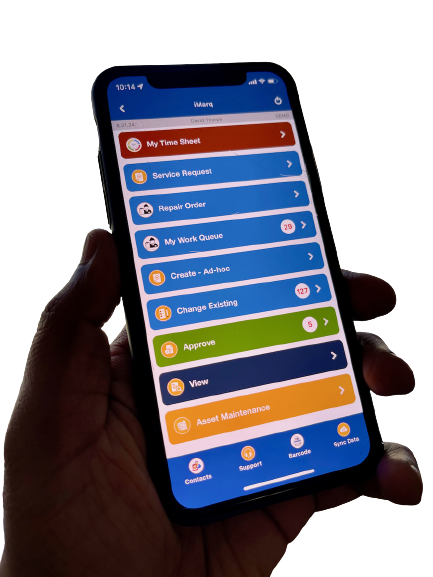The real-time information exchange between truck drivers and shippers should take as much precedence and importance for freight managers as the actual means of transportation itself. The freight logistics industry has undergone a digital transformation, reinventing itself through modern technologies that facilitate improved efficiencies. More truck drivers and shippers adopt innovation to earn themselves a healthy competitive advantage within the industry, adding value to their businesses.
The confluence of Telematics, CMMS and big data is leading the digital transformation, giving companies high levels of actionable market intelligence. This is a concept that Connixt calls Integrated Maintenance (a topic Connixt will explore in future articles). Plus, the growth of e-commercehas forced freight logistics to speed up their operations and execution. Cloud technology facilitates increased operational efficiency, more agility, and the elimination of cumbersome manual processes shippers use to find/secure carrier capacity in the well-fragmented transportation industry.
Cloud Technology Improves Timing and Capacity

There is less worry about load capacity for each road trip
Freight logistics includes many key elements, such as:
- Reaching out to multiple carriers
- Using transportation brokers or overseeing just-in-time requests for different quotes
- Load boards
- Third-party logistics
Each of the above-mentioned elements involves a lot of calling and email. As a result, many companies have been forced to develop on-demand technology solutions. Cloud technology makes freight logistics more time and cost-efficient. For one, cloud technology allows shippers to immediately (and directly) find drivers who have the capacity to truckload freight on the right types of trucks. Furthermore, shippers get upfront, competitive pricing while tracking delivery and transit details so they can keep track of shipping statuses.
Cloud technology eliminates much of the friction from the traditional processes by reducing protracted manual processes and added costs that drive high commissions which directly impact bottom-lines. Companies save labor hours, reduce paperwork and data entry utilizing cloud technology, digitizing all forms and processes involving fleet maintenance and management. Cloud technology scales the transportation industry in countless ways.
Cloud Technology Also Drives Efficiency

Truckers and shippers see improved efficiency thanks to the cloud
Cloud software improves inventory management, providing better insight into lead times and allowing companies to have leaner stock to meet consumer demand. Furthermore, companies welcome increased time savings with cloud technology because companies have greater control over their logistics, offering the necessary resources to keep freight going while increasing the focus on other operational aspects.
With cloud technology, businesses gain greater visibility and control over their supply chains, thus improving efficiency with shipping and receiving freight. Cloud solutions also reduce IT burden since specialized teams are dedicated to security and uptime of large scale cloud infrastructure.
For drivers, cloud platforms facilitate increased visibility as they now have access to information on any loads at the drop-off point, ensuring that they don’t drive homes in empty trucks.
Trucks are increasingly using sensor technology to determine weight and space, as well as scheduled routes and their estimated time of arrival (ETA). The data so collected is then communicated to a cloud platform, notifying fleet managers and drivers about all potential freight-sharing opportunities. Thanks to the increased advent of cloud solutions in the freight logistics industry, goods sitting in warehouses are equipped with their own communications means. These means, specifically communication chips, will contact trucks to establish their transportation routes to a specific destination.
Additionally, such telematics integration can help with vehicle uptime and maintenance – where fault codes can auto-generate work orders, parts requisition and more – essentially get the truck back on the road as soon as possible.
Speed Also Improves Thanks to Appropriate Cloud Solutions
Another advantage that cloud solutions offer is quick payment. With the implementation of cloud technology, drivers can seamlessly upload real-time proof-of-delivery confirmations by simply using a phone camera. The improved speed benefits shippers because they get better freight rates knowing those truck drivers using cloud solutions have fewer capital working requirements.
Get cloud technology and you immediately optimize your freight logistics management. Request your demo today and learn how cloud solutions make logistics seamless.





